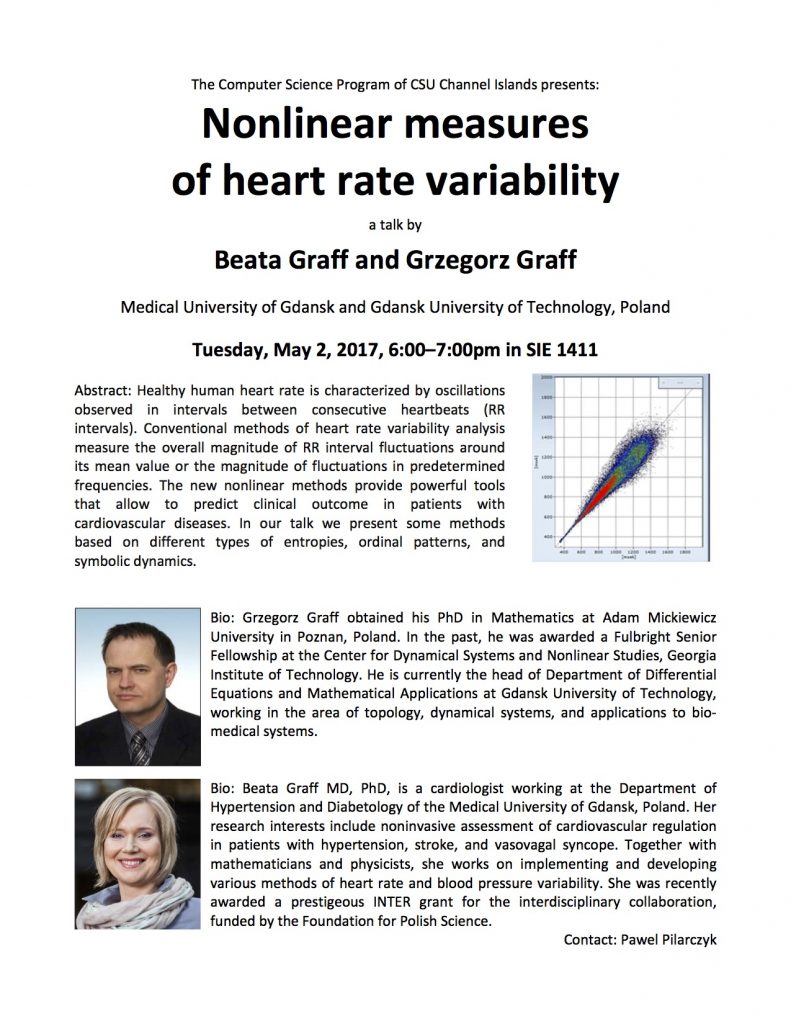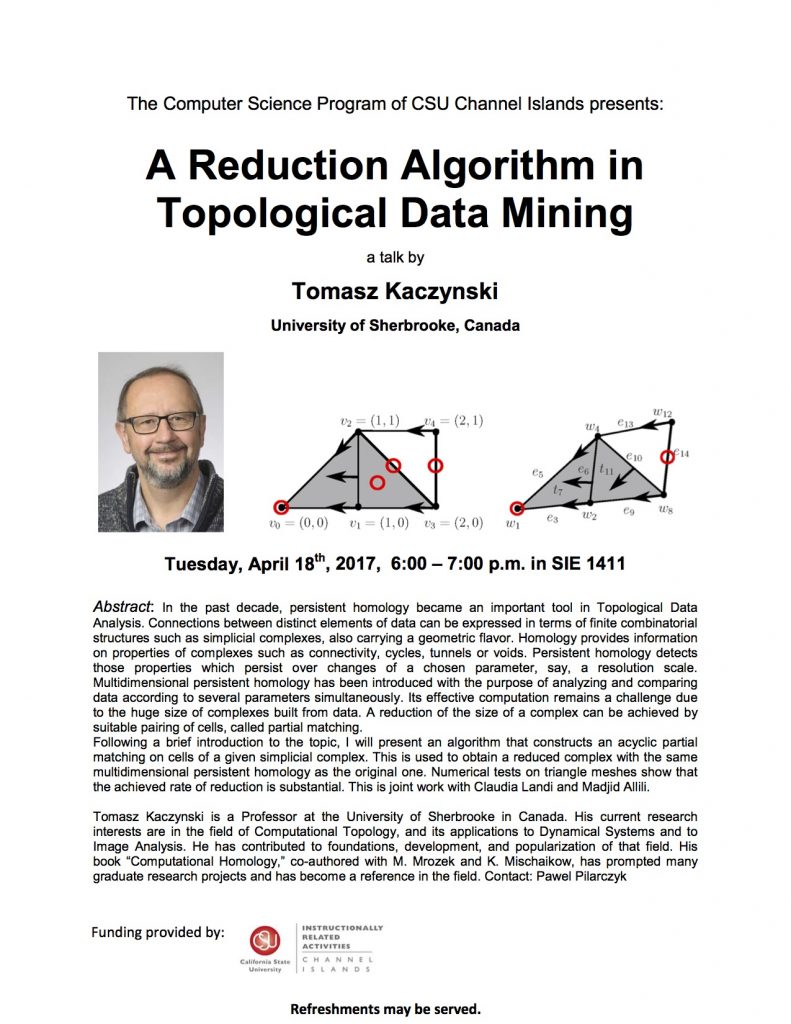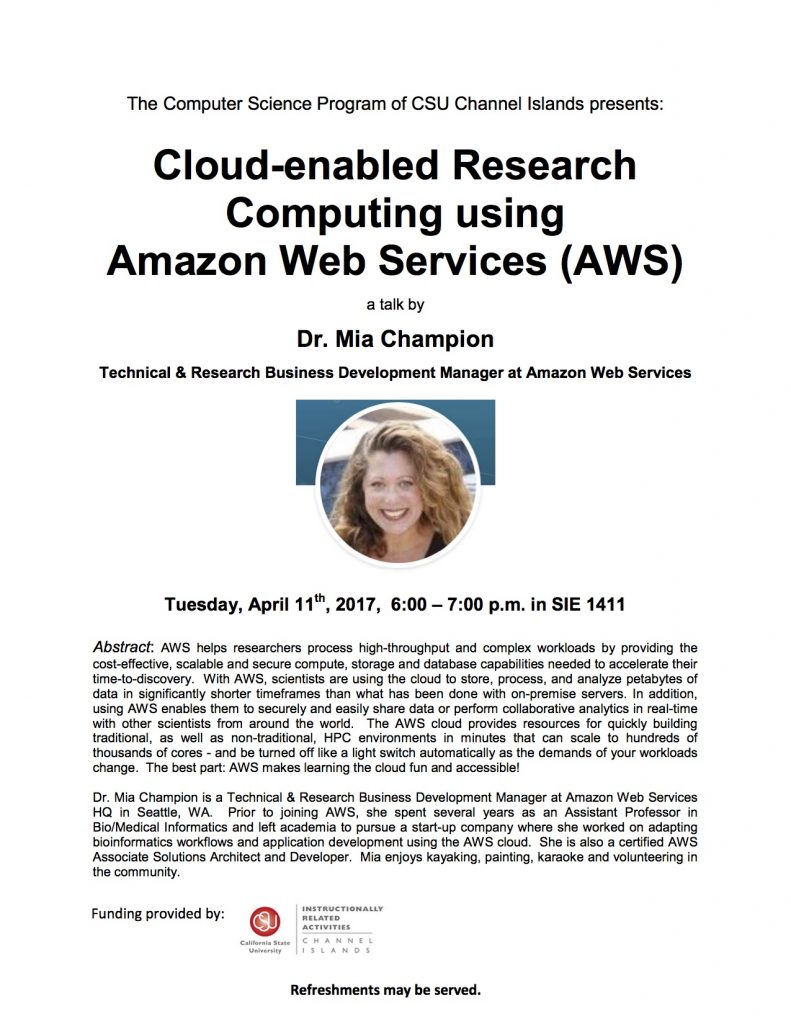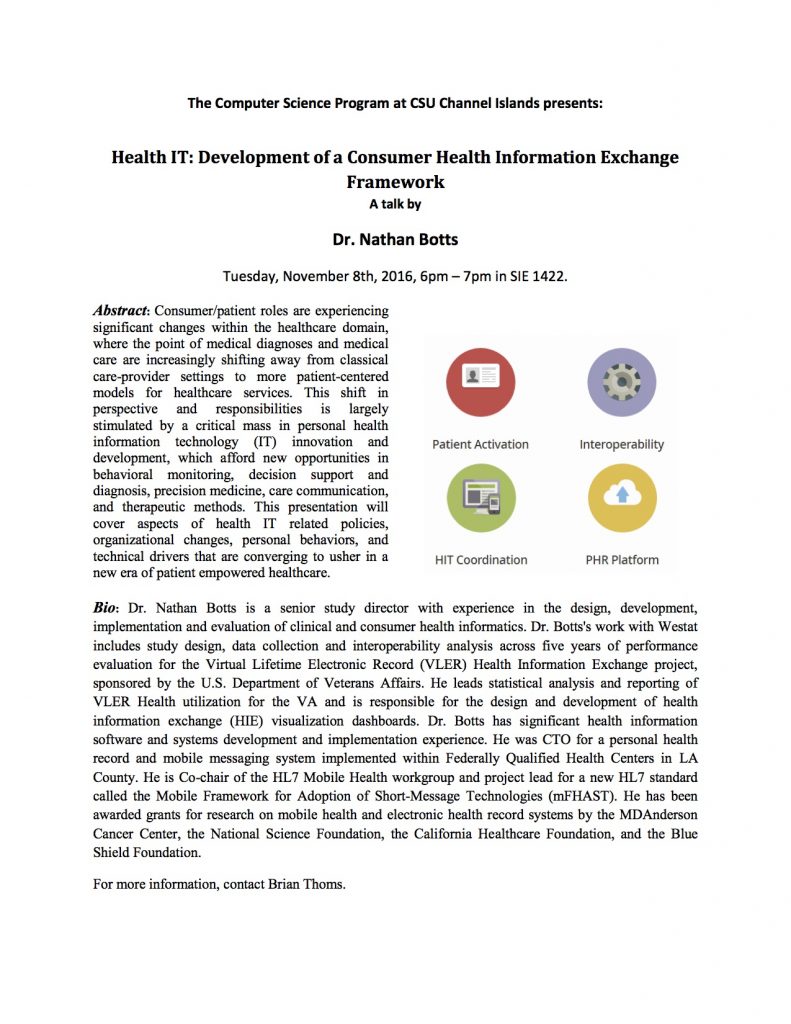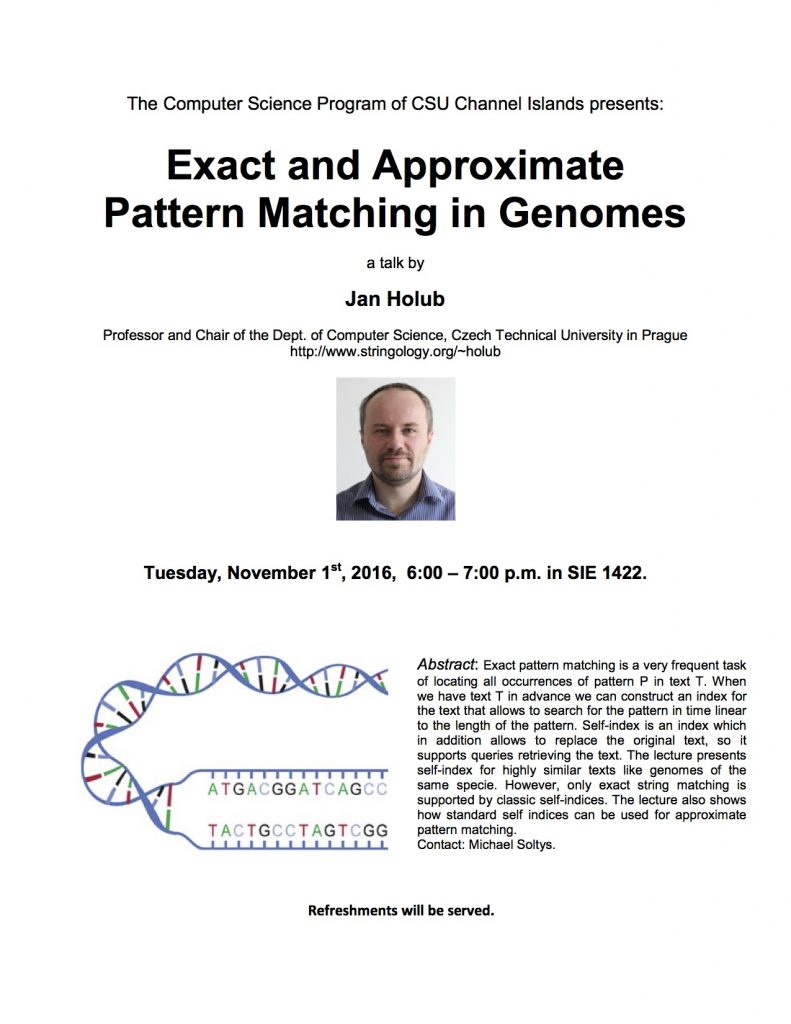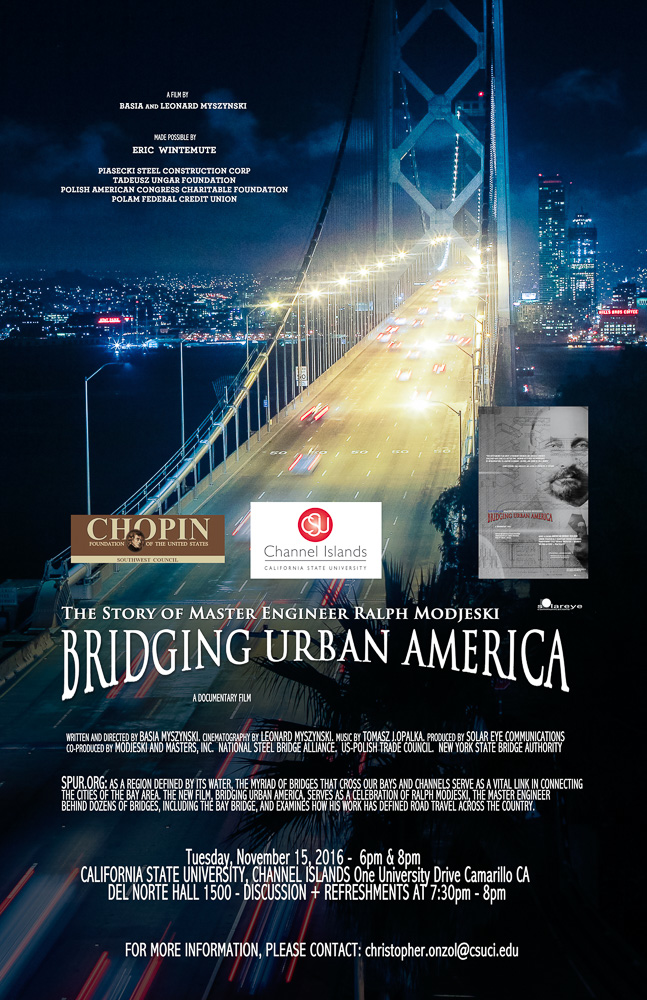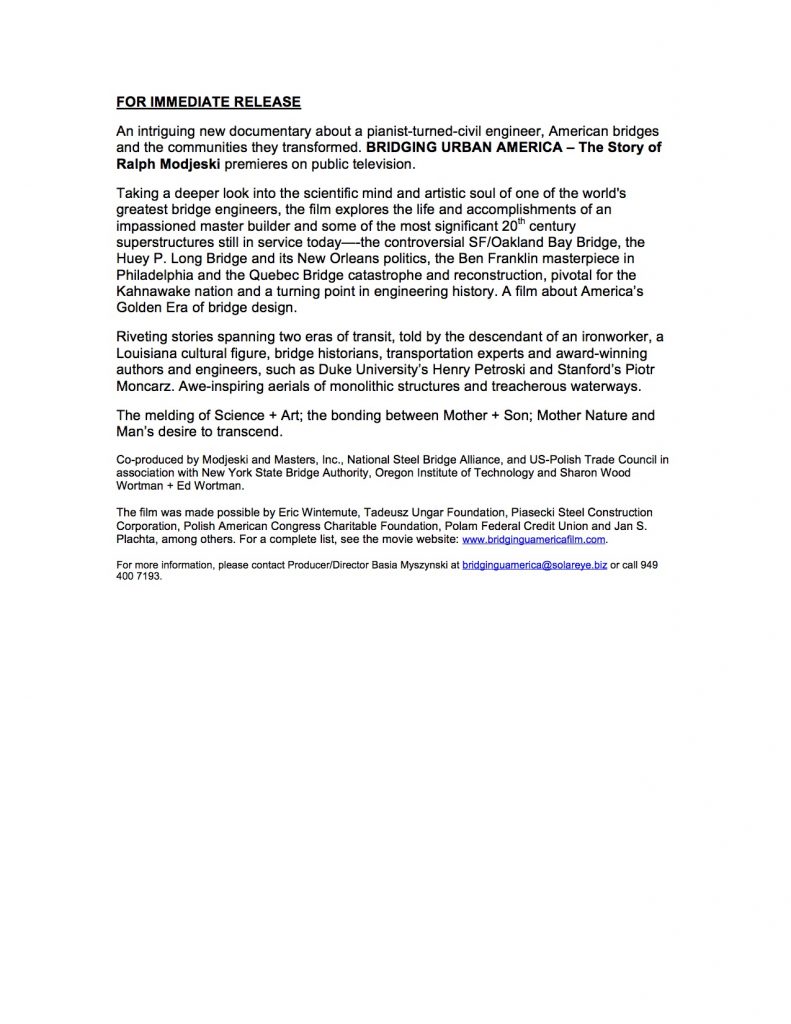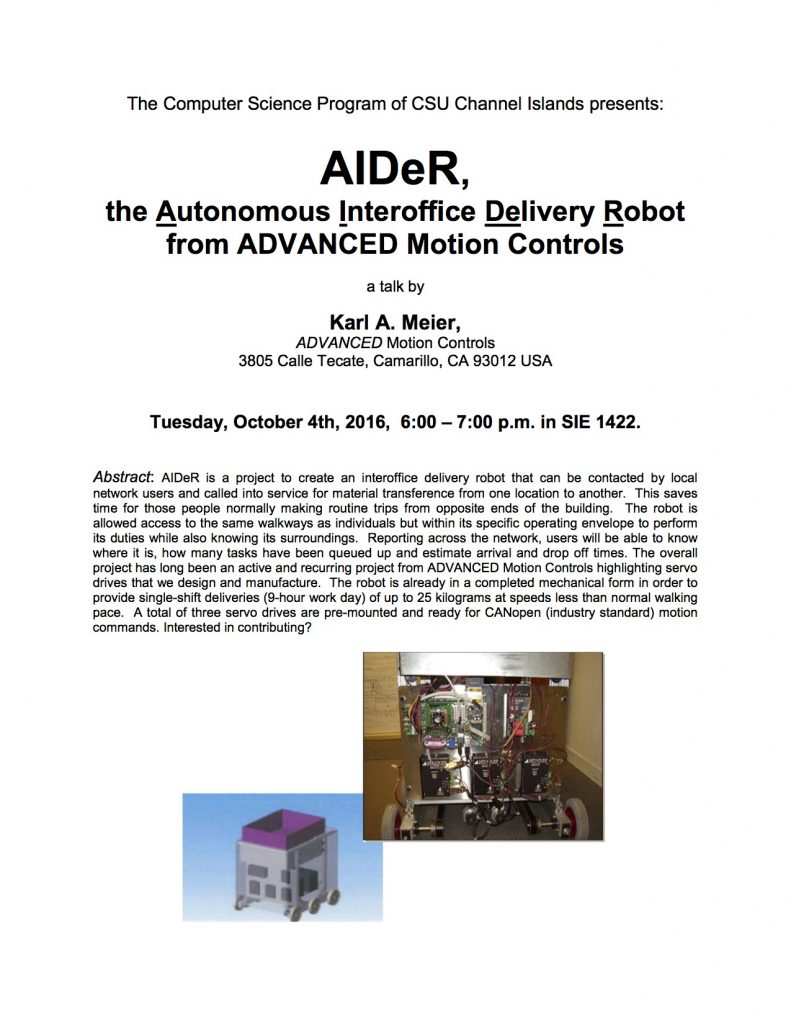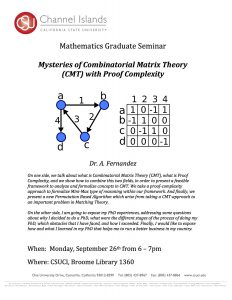CSUCI Cyber-security expert to speak at on-campus engineering convention.
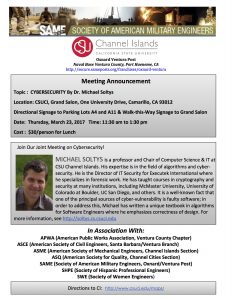 Camarillo, Calif., Feb. 20, 2017—Whether it’s personal information, medical records, national security or election results, computer hacking is a rising national and global concern.
Camarillo, Calif., Feb. 20, 2017—Whether it’s personal information, medical records, national security or election results, computer hacking is a rising national and global concern.
CSU Channel Islands (CSUCI) Computer Science Chair and Professor Michael Soltys, Ph.D., will share his cybersecurity expertise to an audience of professional engineers from 11 a.m. to 2 p.m. on March 23 in the Grand Salon.
“Our society is under constant cyber-threat, as our infrastructure, our economy, and our privacy, depend on secure IT systems,” Soltys said. “My talk will consider the major threats, and present examples of how hackers attack our systems.”
Sponsored by the nonprofit Oxnard Ventura Post of the Society of American Military Engineers, the presentation is geared toward an audience with a high degree of computer expertise, so Soltys plans to share cybersecurity best practices.
“I plan to give more of a technical talk from the engineering point of view,” Soltys said. “How to write code that is more defended. I plan to show techniques hackers use to get into systems.”
One of the principal causes of cyber-vulnerability is faulty software, a problem Soltys addresses in a textbook on algorithms he wrote for software engineers.
Aside from his teaching at CSUCI, Soltys also acts as Director of IT Security for Executek International where he specializes in forensic work.
The public is welcome at the presentation, which is on campus at One University Drive in Camarillo. Cost is $30 a person for lunch.
Follow the directional signage to Parking Lots A-4 and A-11, then follow “walk this way” signage to the Grand Salon.
To register for the presentation, click on:
http://www.same.org/Oxnard-Ventura
